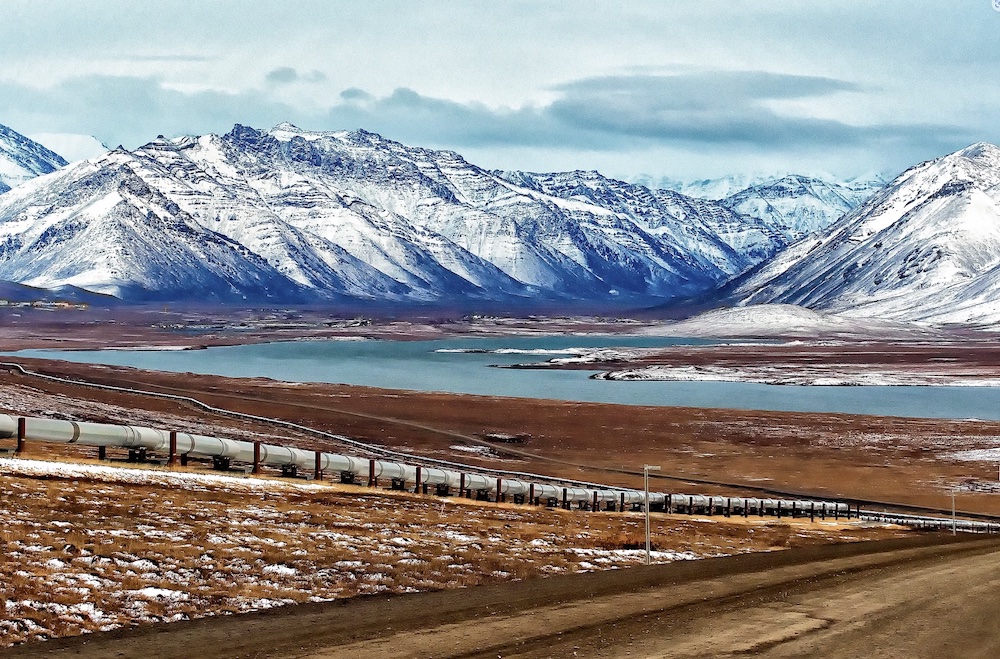
- Details
- By Chez Oxendine
- Energy | Environment
A nonprofit group representing Arctic Iñupiat communities in Alaska’s North Slope Borough is suing the Bureau of Land Management over newly implemented regulations for the National Petroleum Reserve in Alaska (NPR-A).
The group, Voice of the Arctic Iñupiat (VOICE) alleges in the lawsuit that the federal agency failed to adequately consult with the North Slope Iñupiat during the rulemaking process, and the rule changes will jeopardize the tribes’ economic well-being.
The Borough is a county-like government in Alaska comprising 8 communities across an area roughly the size of Minnesota. The Borough sits within the NPR-A, one of the largest oil reserves in the country. More than 95 percent of the Borough’s tax revenues stem from property taxes leveraged against oil and gas development. If those revenues are impacted by stymied development, it’s going to harm tribal members, VOICE asserts.
The lawsuit centers on a revision of regulations governing NPR-A that aims to balance oil-and-gas development with environmental protections. As implemented, the new rules ban development on roughly 10.6 million acres. The ban comes with additional restrictions on building roads and other infrastructure in the NPR-A, per the lawsuit.
In addition, the rule establishes a framework to designate and manage “special areas” with strict regulations on oil and gas development. That could further limit oil and gas growth on an additional 13 million acres, according to a spokesperson for VOICE.
“Taking 13 million acres off the table for development poses a real threat to the services that the North Slope Borough provides,” Kate Wolgemuth, program and government affairs manager of VOICE, told Tribal Business News. “The economic opportunity out here is very low, and the cost of living is very high. When we lose the ability to provide that support, we lose jobs, and then we lose people because they move away, and then we lose our culture because they take that with them.”
The group filed the lawsuit in late June, asserting that the new rule would create “onerous barriers” to development on the remaining available acres in NPR-A. The suit also states that the finalized rule was created and implemented on an “artificially compressed timeline” sans appropriate tribal input.
In effect, the Bureau of Land Management, an agency within the U.S. Department of the Interior, “shut out” dissenting voices from speaking against the finalized rule, Wolgemuth said.
“We knocked on every door that anybody ever told us to go to, and it has been an extremely frustrating process,” Wolgemuth said. “To this day we don't still have clear answers on who made the decision to create this rule, move forward with this rule, or even why it was created.”
The VOICE members aren’t the only ones who feel dismissed: the North Slope Borough filed its own lawsuit in early July as well, according to court documents. The Borough’s suit asserts that the NPR-A rule contravenes existing goals for the petroleum reserve. The suit also states that Interior didn’t perform due diligence during their economic study of the rule’s impact. That lawsuit seeks to have the NPR-A rule vacated, as well as injunctive relief.
The Department of Interior declined to comment on this story.
'Silence, stonewall, and scorn'
The revised rules around NPR-A were first announced in September 2023 to amend the Naval Petroleum Reserves Production Act of 1976. The goal, per a Bureau of Land Management press release, was to balance oil and gas development with environmental conservation practices.
A fact sheet on the topic notes several amendments made to the initial announced rule following a “robust 90-day comment period.” These amendments include clarifications that the rules apply only to oil and gas activities, as well as a promise to seek co-stewardship opportunities in managing special areas.
Wolgemuth said the Iñupiat, however, weren’t aware of a consultation period until the rule was proposed. Printed notifications were allegedly mailed to the Borough, but “no one received them,” and to this day the organization hasn’t seen a printed notification, Wolgemuth said.
As a result, the tribe was given 60 days to comment, not 90. Once the comment period was announced, the Iñupiat asked for a 90-day extension — a request that went unheard.
“We were trying to understand how the proposed rule would affect the region. That would take more than 60 days. It was uniformly asked, we had support from other organizations - we had outside support, and our Congressional delegation asked for an extension as well,” Wolgemuth said. “We had supporting entities, and we were given two short extensions - one was 20 days and one was 10 days.”
Subsequent attempts to contact the Department of the Interior directly were unproductive. The tribe met with lower officials who couldn’t explain or impact the decision or “stonewalling” from Interior Secretary Deb Haaland, Wolgemuth said.
“To say that we were getting the runaround is like an understatement,” Wolgemuth said. “We spoke to a DOI official during a working group call about NPR-A, and we asked why is this being so rushed? She said that we’re not getting extensions, and that the timeline is beyond her control, and that’s what we’re working with. We couldn’t figure out where this decision was being made.”
In a statement, VOICE President Nagruk Hacharek said the North Slope Iñupiat had been “silenced” by the responses from the Bureau of Land Management.
“Our complaint speaks for the North Slope Iñupiat’s voices whom the federal government has chosen to silence, stonewall, and scorn since it blindsided us with its unilateral mandates in September 2023,” Harcharek said. “It is unfortunate that we have been forced to turn to the courts for resolution on this seriously flawed rule and the process that produced it. If the administration would have meaningfully engaged with the North Slope Iñupiat, we would likely not be in this position today.”
